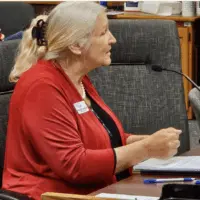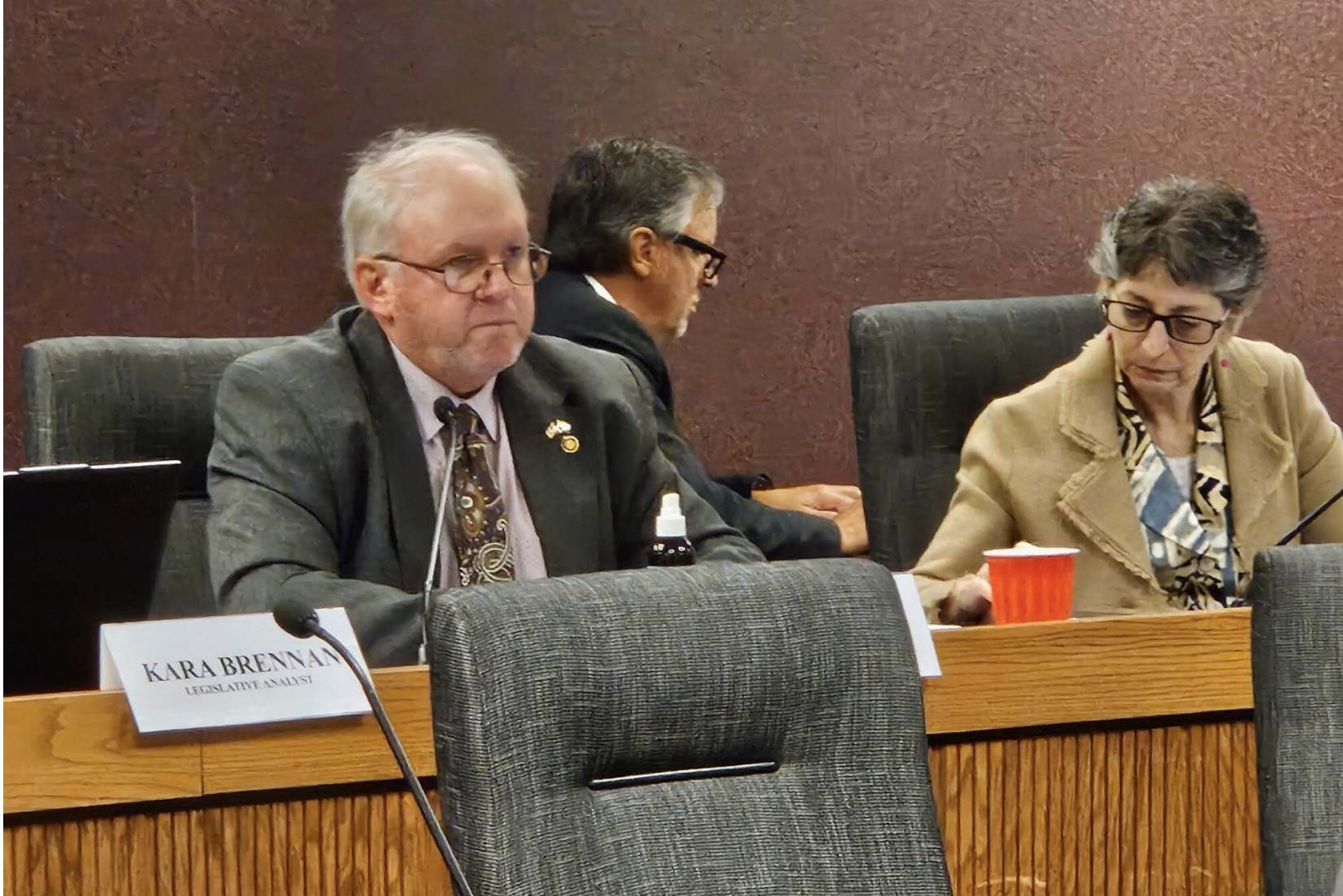
The Missouri House committee studying property taxes held its sixth and final public hearing. Now, the chairman said, comes the work of turning the ideas presented into meaningful changes in the way taxes are assessed and levied
BY: RUDI KELLER
Missouri Independent
Missouri lawmakers should repeal property tax freeze laws that are warping the system, shifting the tax burden and failing to help those most in need of relief, St. Charles County Collector Michelle McBride said Wednesday.
Speaking to the House Special Interim Committee on Property Tax Reform, McBride said there are 115 properties in St. Charles County worth more than $1 million covered by a senior citizens tax freeze law. Many were built recently, including a $4 million home built this decade, she said.
And during June, she noted, a bill with caps on growth in tax bills for residential taxpayers in 97 counties exacerbated the problem. She likened it to the television and movie series “Jackass,” where dangerous stunts and potential injuries were the main attraction.
“It’s Jackass legislation, pardon my French, done on the dare, done to look good, to sound good, to capture votes, to put on a show, just like some kid on a trail bike lining up the barrels and trying to jump over them,” McBride said. “It ain’t going to work out. We’re going to hit the fence.”
Lawmakers need to reject anything that doesn’t deal with underlying issues in the tax system, she said.
“We need you to be the adults in the room at the Missouri General Assembly,” McBride said.
McBride’s testimony opened the hearing, which was the last of six held across the state over the past three months. The committee was formed because aggravation over higher property tax bills has held the attention of state lawmakers for the past three years.
A last-minute change in the committee lineup caught both the chairman, Republican state Rep. Tim Taylor of Boonville, and the ranking Democrat, state Rep. Kathy Steinhoff of Columbia, unaware.
State Rep. Kemp Strickler, a Democrat from Lee’s Summit, was replaced by state Rep. Tiffany Price, a Kansas City Democrat, without explanation.
Under questioning from Steinhoff, Taylor said he had not received notice prior to the meeting that House Speaker Jonathan Patterson had made the change.
“Rep. Strickler was a very valuable member of this committee,” Steinhoff said. “He was in the eye of the storm in Jackson County.”
Strickler, who drove to the Missouri Capitol Wednesday morning for the hearing, said he was not told why he was removed and only found out shortly before the committee was set to meet.
During the almost six-hour meeting, the committee was urged to change how taxes are levied and how values are determined. Members also heard complaints from the public, including allegations that vengeful assessors will punish property owners who challenge their appraisals. Representatives of agencies dependent on property tax asked that nothing be done that would reduce their revenue.
And, to close it out, committee members questioned Missouri State Tax Commission members and staff over policies and processes that have pushed assessors to increase residential assessments to reflect the rapid runup in home values.

Taylor told members their work is not over as the hearing ended.
“This is by far not the last meeting,” Taylor said.
One idea the committee was again urged to adopt would require separate rates for the four classes of property — residential, commercial, agricultural and personal — that could be adjusted when assessed values rise faster than inflation.
Under the Hancock Amendment in the state constitution, when the value of property in a taxing district grows faster than inflation, rates are supposed to be reduced. But when one class of property is increasing faster than others, the effect is a smaller rollback than if the class of property had its own rate.
Another idea that came up again was requiring buyers to file information about the price paid for property — known as a certificate of value — to help assessors when comparing property values.
Some of the most dramatic testimony came from individual property owners trying to understand their assessments.
Jennifer Phanton of Grandview said the assessment on her home doubled in 2023. She found that the comparable sales used weren’t actually comparable, she said, and the assessment form listed improvements that had not been made.
She won her appeal, Phantom said, but it was a lengthy process.
“It’s just a lot because the onus is on us, it is not on the county, to prove the valuation,” Phanton said.
The increase was doubly hard to take, Phanton said, because her income was just above the threshold for the Circuit Breaker tax credit, available to people with a disability or who are 65 and older.
The circuit breaker tax credit was established in 1973. People over age 65 and those who have a qualifying disability and rent their homes can claim a tax credit to offset property taxes of up to $1,055 if their income is less than $38,200. The credit for homeowners is up to $1,550 if they own their home if their income is less than $41,000.
If the credit is more than the taxpayer owes, the state will write a check for the difference.
Increasing the income limits and credit amounts is the best way to help vulnerable people keep their homes, McBride said.
Missouri law requires county assessors to estimate the value of every property every two years. The tax commission is responsible for making sure the values are within 90 to 100% of market value.
The commission sought to get counties to sign a “memorandum of understanding” when tax assessments fall behind that standard. Some counties are suing over requirements that residential assessments increase by up to 15%. That is the most home values can be increased without an inspection of the exterior.
Under questioning from the committee, Tax Commission member Greg Razer said the commission has acted to control the excessive increases in Jackson County.
Values below market hurt public services, he said.
“We have to protect the entities that are receiving the tax dollars that the voters have approved, and so if you’re at 60%, eventually you’re not keeping up with inflation, and you can’t provide the same services,” Razer said.
Most of the counties asked to sign a memorandum of understanding have seen a rapid increase in home values in the past five years, said Steve Hobbs, executive director of the Missouri Association of Counties.
Part of it is people moving from high-cost coastal areas and part of it is investors looking for rental properties.
But Hobbs, like McBride, warned against artificial controls on tax bills.
“When you create a carve out for one entity,” he said, “you shift the tax burden to others.”
At the end of the hearing, Taylor asked members to make a list of the five issues they would like to see addressed in the committee’s report. The next meeting will be while the General Assembly is holding its special session on redistricting, he said, with a future meeting to finalize a report and prepare legislation.
“It is a big old bucket of stuff we have to digest,” Taylor said.


